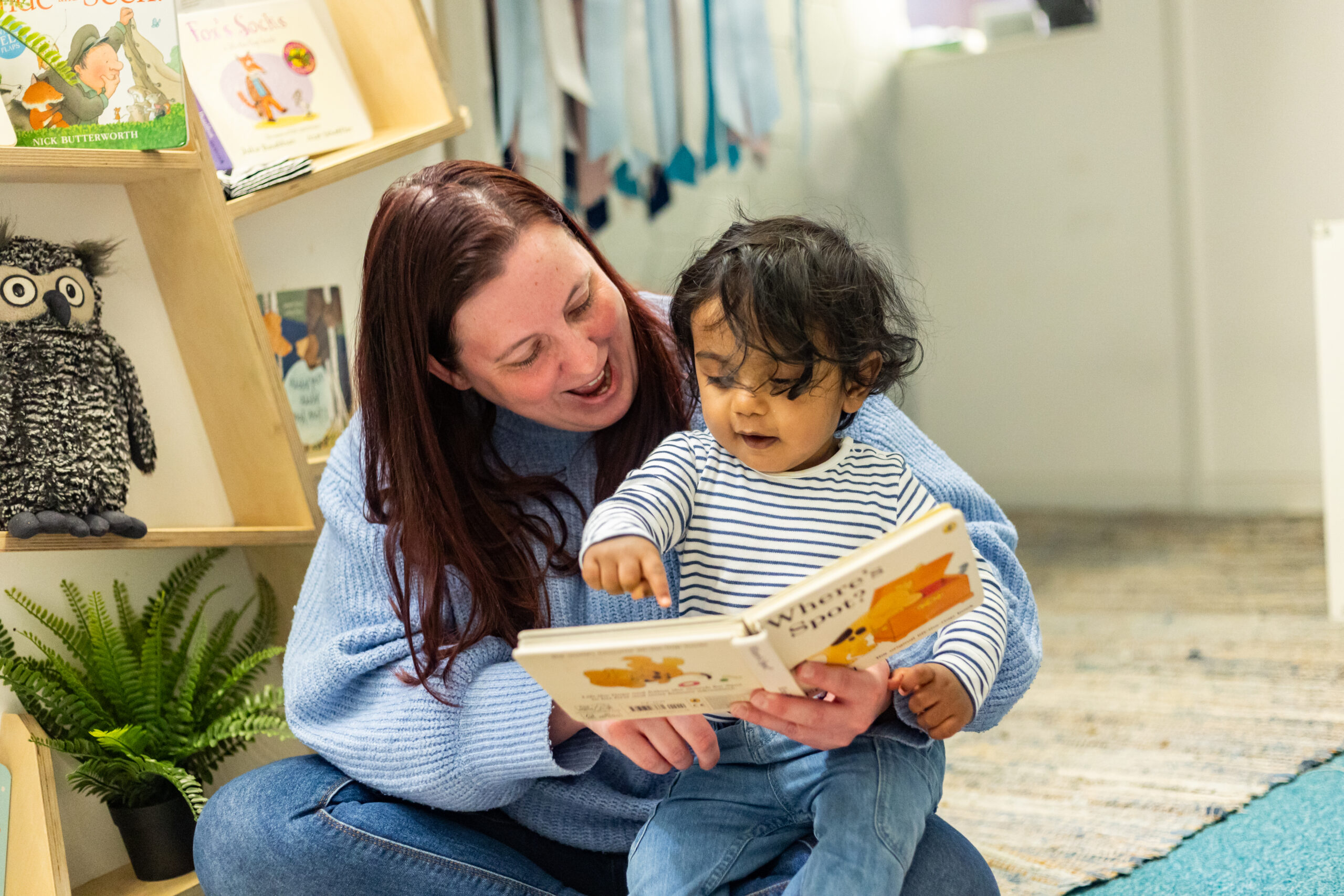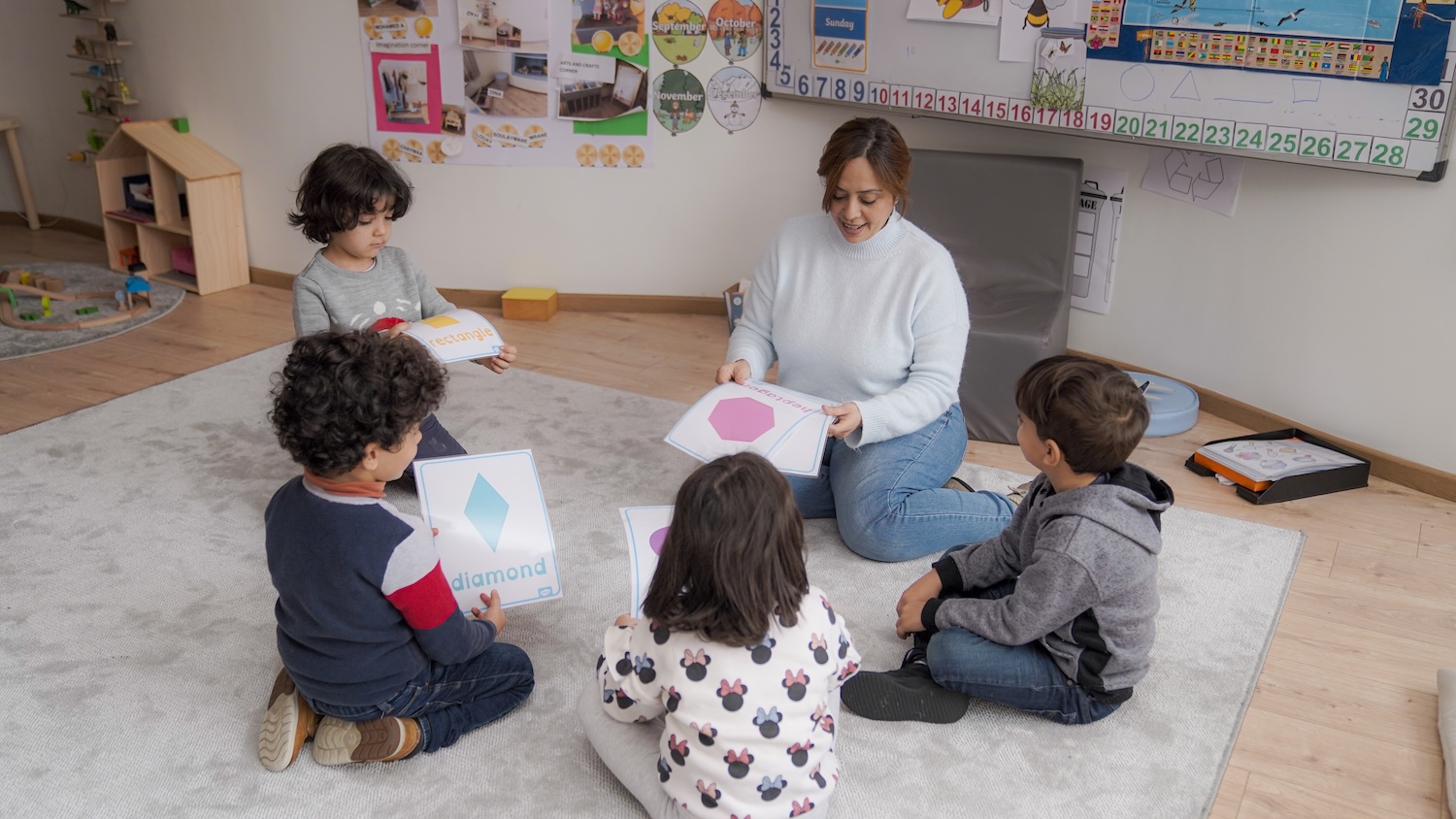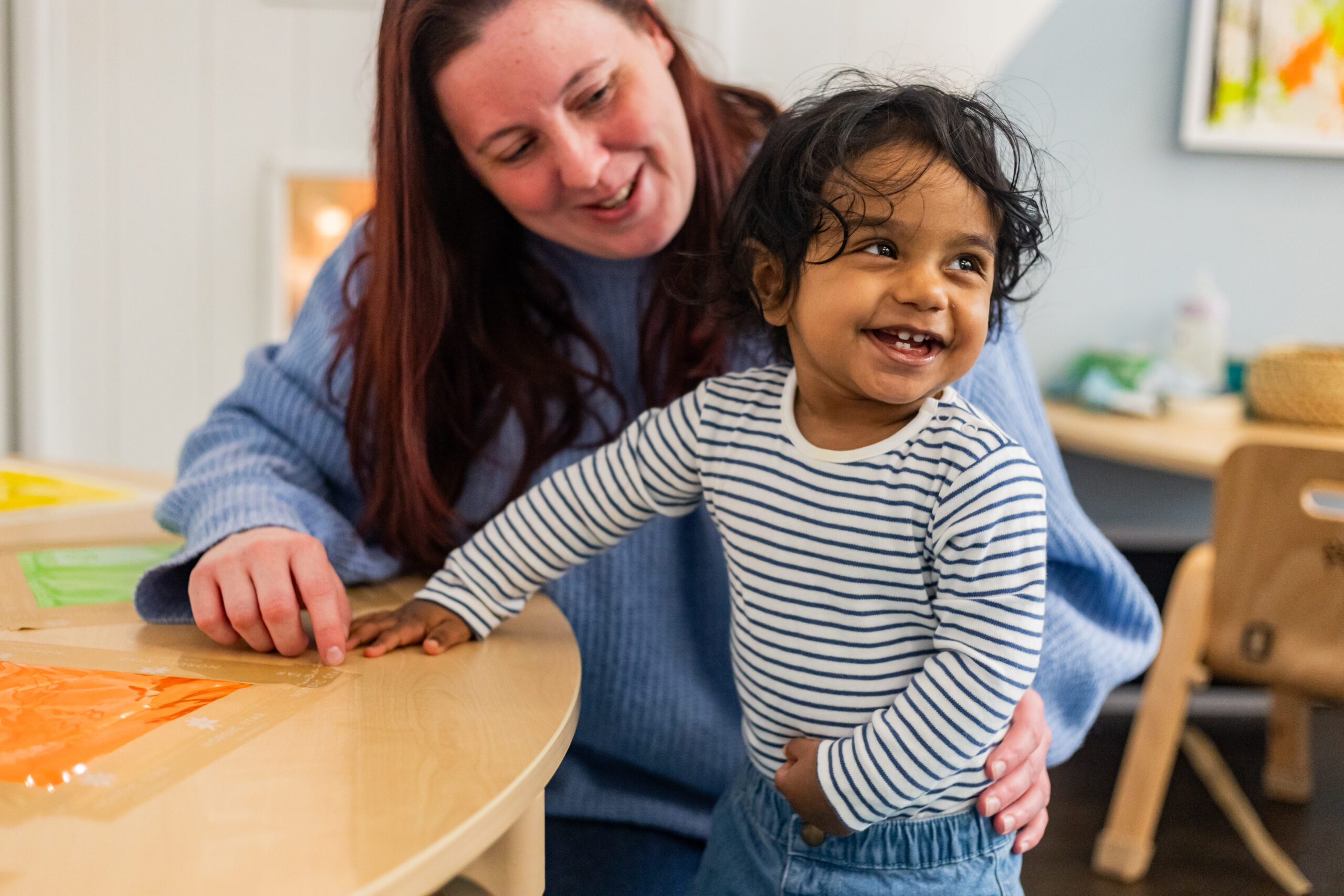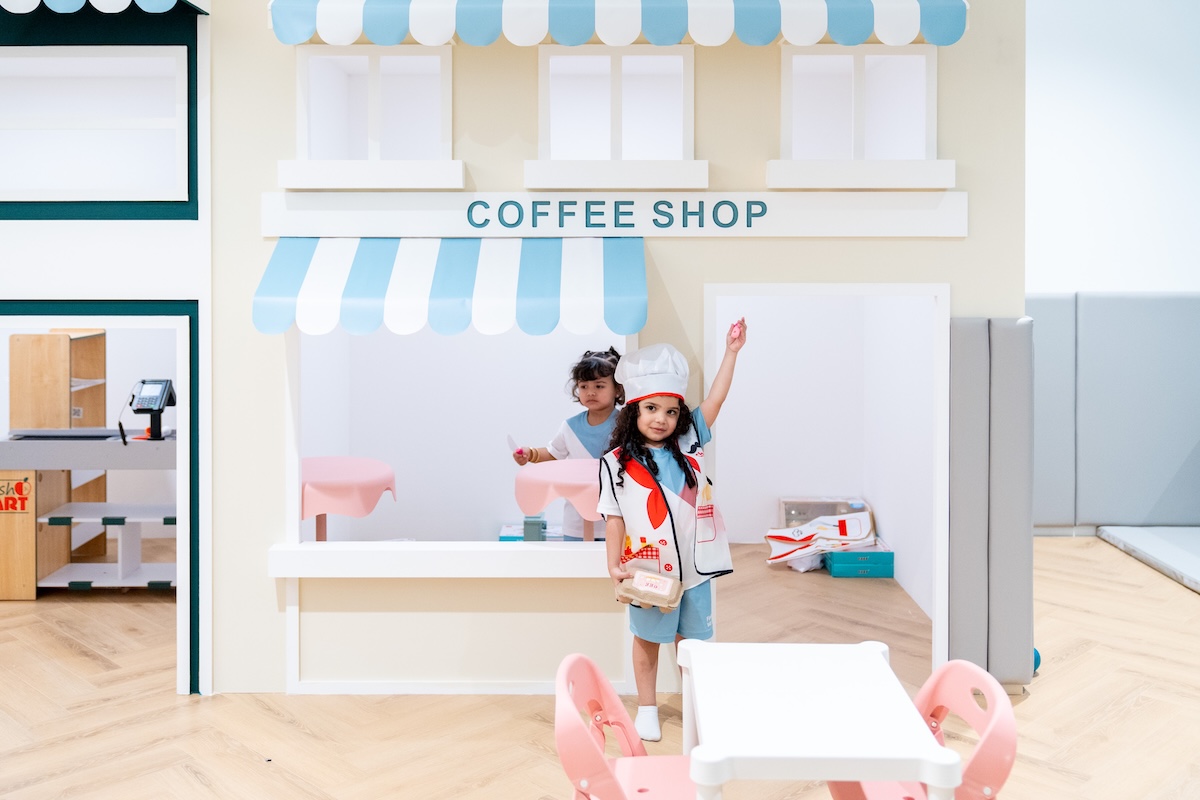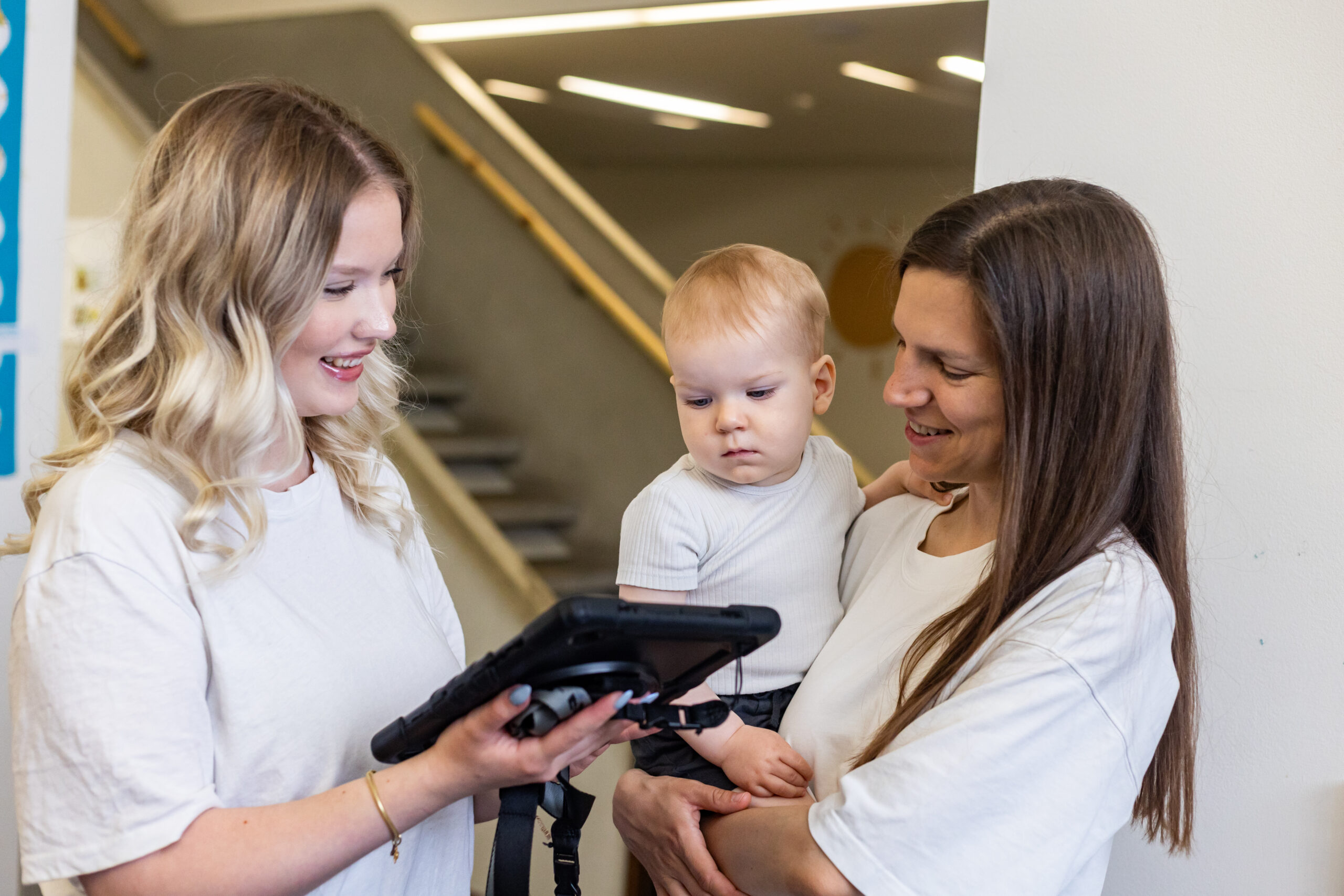Early childhood is a key developmental stage for building the foundations of communication and literacy. At FinlandWay®, our approach centres on purposeful preschool activities and play as powerful and natural ways for children to develop language, motor skills, and the confidence to express themselves. Research confirms that play-based preschool activities not only support vocabulary and speech development but also lay the groundwork for reading and writing.
Why play-based preschool activities enhance language learning
Children acquire language through active participation in meaningful interactions. When they engage in pretend play, collaborate with peers, or explore sounds and stories, they practise using language in real-world contexts. According to the National Association for the Education of Young Children (NAEYC), play promotes initiative, problem-solving, and language development. These skills are essential not just for school readiness, but for broader cognitive and social growth.
Interactive, playful experiences stimulate the areas of the brain responsible for speech, listening, and memory. Children from different backgrounds, especially those learning more than one language or coming from disadvantaged environments, benefit significantly from structured but flexible language-rich activities.
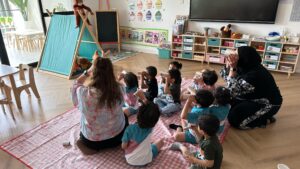
10 Language-boosting preschool activities that promote learning
1. Circle time: preschool activities with rhymes and fingerplays
Nursery rhymes and fingerplays create a playful rhythm that enhances phonological awareness. Repeating rhymes and matching words with actions helps children recognise patterns in language, improving sound recognition and memory and helps children participate confidently.
en.wikipedia.org+3en.wikipedia.org+3parentingchaos.com+3.
2. Storytelling & role‑play: dramatic preschool activities for language growth
Acting out stories and scenarios with costumes or props allows children to practise sentence formation, develop narrative structure, and express ideas creatively. This builds confidence in speaking and deepens vocabulary in context.
3. Word games: phonics-based preschool activities to expand vocabulary
Games like “I Spy,” sound hunts, or matching letters to pictures make early literacy fun and interactive. These activities encourage children to listen for initial sounds, identify patterns, and apply new vocabulary in real situations.
4. Tongue twisters & clapping games as fun preschool activities for pronunciation
Challenging phrases paired with rhythm games improve pronunciation and fluency. Clapping along reinforces word segmentation and auditory processing, helping children strengthen their speech coordination.
5. Object labelling & scavenger hunts: active preschool activities for word association
Children hunt for objects based on clues, labels, or categories and are encouraged to describe what they find using full sentences. This builds vocabulary, supports classification, and develops expressive and receptive language.
6. Nursery rhyme movement: rhythmic preschool activities to strengthen phonological skills
Linking language to physical movement, like jumping to a rhythm or dancing to a rhyme, supports memory, auditory skills, and the understanding of word-action relationships, especially beneficial for kinaesthetic learners.
busytoddler.com+15parents.com+15mybrightwheel.com+15naeyc.org+3parentingchaos.com+3parents.com+3.
7. Peer play: collaborative preschool activities for conversational development
Whether building together or acting out scenarios, children learn conversational turn-taking, active listening, and negotiation. These shared experiences help develop social language and the ability to communicate ideas clearly.
cune.edu+9openjournals.utoledo.edu+9en.wikipedia.org+9.
8. Music & singing: Preschool activities that boost rhythm and vocabulary
Repetitive lyrics and melodies introduce new words and structures in a memorable way. Music also supports language rhythm, pronunciation, and cultural expression, making learning inclusive and enjoyable.
9. Reading corners: Preschool activities for interactive storytime and comprehension
Cosy reading areas and small-group story sessions create space for dialogue. Educators can ask open-ended questions, encourage predictions, and invite children to retell stories, boosting comprehension and verbal expression.
10. Daily routines: open‑ended preschool activities to foster expressive speech
Routine moments like tidying up, dressing, or meal preparation become rich with language when adults model descriptive speech and ask thoughtful questions. These interactions help children use language functionally and confidently in everyday contexts.
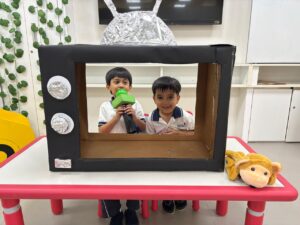
Bonus preschool activities that support language and literacy skills
a) Sensory preschool activities for descriptive and explorative language
Before a child picks up a pen, they need to develop key physical and cognitive skills. Writing begins long before letters appear on paper. Young children benefit from exploring different tools and textures. Drawing with fingers in sand, stamping shapes, or using thick crayons helps them learn to form lines and curves intentionally. Through sensory bins (filled with rice, sand, water, or slime), children develop descriptive vocabulary, fine motor skills, and encourage joint attention.
b) Baby sign language: preschool activities for non-verbal and verbal connection
Introducing simple signs alongside speech can help young children communicate before they’re fully verbal, supporting both expressive and receptive language development.
c) Tech-time with purpose: educational preschool activities using digital Tools
When used with adult support, digital tools such as language-learning apps or co-viewed videos can add value to language acquisition.
Research highlights
- Play-based learning builds stronger foundations: Studies show that play-based approaches enhance executive function, language development, and overall school readiness more effectively than direct instruction. Children who learn through play are more likely to develop problem-solving abilities, emotional regulation, and communication skills edutopia.org.
- Nursery rhymes support phonological and vocabulary growth: Repetitive rhymes and rhythmic patterns help children recognise sounds, syllables, and word structures, key building blocks for reading and speaking. Singing and reciting rhymes strengthen both phonetic awareness and vocabulary retention. en.wikipedia.org.
- Sensory play supports diverse learning needs: Engaging with sensory materials, such as sand, water, dough, or textured objects, promotes speech development, attention span, and planning skills. Sensory activities are particularly beneficial for children with varying needs, including those on the autism spectrum, by providing calming, hands-on opportunities for communication and exploration.
Embedding preschool activities across the daily routine
Ensure preschool activities are part of mealtimes, tidying up, outdoor play, or quiet time. Model expanded language—“That’s a soft, red apple” instead of just “apple”—and prompt elaborations on speech. Provide supportive feedback and follow-up questions.
How schools can support language-rich preschool activities
- Offer regular training for educators on integrating playful language methods, sensory play, guided reading, and inclusive practices.
- Design learning environments with literacy corners, dress-up stations, sensory areas, art corners and tech-integrated learning zones.
- Track language development and adapt environments to meet individual learner needs.
At FinlandWay®, we support schools and educators in designing and delivering holistic early years programmes that align with the latest research in child development. Our training, materials, and pedagogical support ensure that every child has the opportunity to develop strong language and early literacy skills through play.
Conclusion
Delivering well-designed preschool activities nurtures vocabulary, expressive speech, confidence, and school readiness. By embedding playful, interactive, and sensory-rich experiences daily, educators nurture holistic growth and empower young learners.
Connect with Finlandwayschools to bring these strategies to life and enrich your early years programme, ensuring every child thrives through playful learning.
